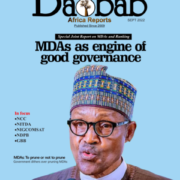Poor performance management and low productivity levels derailing local government. WWISE managing director Muhammad Ali proposes standards-driven model to restore public trust in South African municipalities.
The absence of strong performance management systems grounded in proven frameworks has led to a productivity crisis in South African municipalities. That is the harsh reality facing the country at local government level, according to Muhammad Ali, Managing Director of World Wide Industrial Systems & Engineers (WWISE).
The overwhelming majority of South African municipalities find themselves wanting when it comes to performance, with a paltry 16% (41 out of 257) receiving clean audits in 2024.
WWISE has devoted considerable time to comparing South Africa’s public sector productivity statistics with those across Africa and globally – and the results are telling.
Common productivity metrics in Africa
The company has analysed common productivity metrics in Africa, such as GDP per hour worked, output per employee, service delivery indicators, performance management systems, efficiency of government spending and customer satisfaction scores, to establish why countries like Algeria and Mauritius are succeeding.
Algeria, for example, ranks highest in Africa due to its capital-intensive energy sector and strong state-led infrastructure. Yet a closer inspection reveals that the North Africa country has also embraced ministry-level key performance indicators (KPIs), audits and evaluation reports, and efficient budget execution policies.
Likewise, Mauritius has achieved greater public sector results by implementing KPIs for ministries, performance-based budgeting and annual staff appraisals.
Conversely, South African municipalities fall well short in terms of performance management.
Individual development plans vs leadership, communication
Ali says existing performance management systems are rarely cascaded to operational level, while individual development plans often fail to tackle issues of leadership, motivation or communication.
“Added to this, budget limitations restrict training and resourcing. These factors drive poor service delivery and audit outcomes,” he says.
“If you look at the global benchmark for skills, there is one engineer per 1 000-1 500 people. Furthermore, all critical roles are filled. In South Africa, you have one engineer per 3,166 people and municipal vacancies are rife. Similarly, South Africa’s non-revenue water (NRW) situation is hugely problematic, with 46% of water systems at critical or high risk. On the global benchmark, most water systems are at acceptable risk.”
Ali says it is imperative that South African municipalities introduce internationally recognised standards to reverse the trend, which is costing the country billions of rand each year.


Muhammad Ali
These standards fall under the International Organisation for Standardisation (ISO) and address aspects such as employee engagement (ISO 23326), human capital metrics (ISO 30414), human governance (ISO 30408) and workforce planning (ISO 30409).
“A standard like ISO 30414 measures skills gaps, turnover, absenteeism and training impact while ISO 30408 strengthens governance, accountability and ethical decision-making. By implementing these standards, you can honestly expect to see clean audits among our municipalities rising from 16% to as much as 90%,” Ali says.
A new model to Identify, mitigate high risks with smart objectives
The model he proposes encompasses a learning management system, effective blended learning linked to individual development plans, KPIs and work skills plans, and using the risk and process-based approach to Identify high risks and mitigating them with smart objectives for the municipality.
Ultimately, there needs to be the creation of a municipal standard on delivery and quality of output, which is then integrated into automated tasks to manage the efficiency of deliverables. Should this not happen, the matter is escalated to the relevant authorities to take the necessary action against transgressors. On the flip side, those meeting their objectives should be recognised for their efforts.
Wanted: High investment to turn the tide
However, Ali stresses the need for serious investment if South Africa is to turn the tide. He further warns that implementing this model is not a “short-term fix”.
“It requires a three-year commitment, with project costs ranging between R150 million and R200 million. But it is important to note that this is not about consultants giving advice – it’s about experienced ISO implementers embedding themselves into the business, driving skills transfer, governance reform, productivity and performance improvements. Only then can service delivery improve – validated through independent certification from credible bodies like the South African Bureau of Standards.”
Ali will be a keynote speaker at next month’s Local Government Indaba at Gallagher Estate in Midrand, where he will present on the proposed standards-based solutions model.
The 2-3 October indaba, hosted by the Department of Cooperative Governance and Traditional Affairs (COGTA), will bring together more than 250 municipal human resources practitioners to address critical challenges in performance and productivity management within South Africa’s local government sector.





















